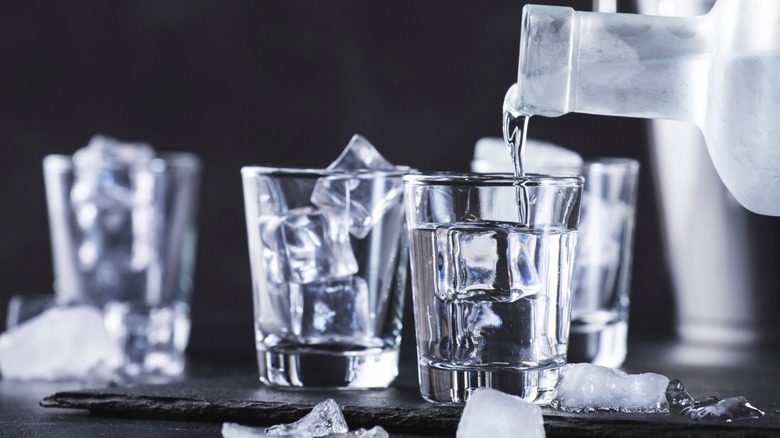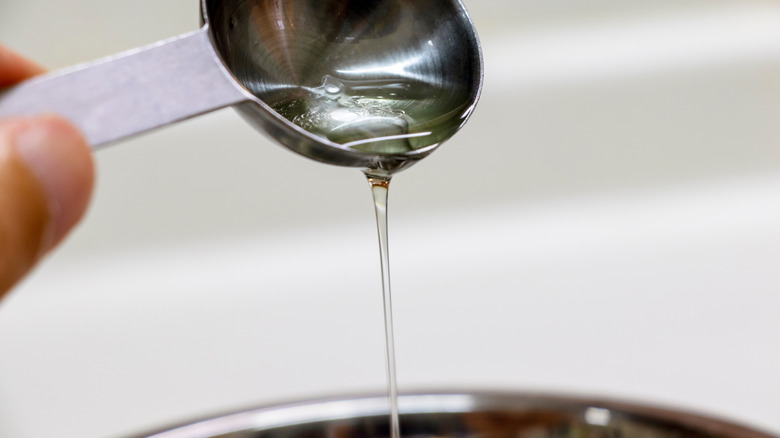The Type Of Vodka You Should Use For Cooking
Chefs often add vodka to their menu items for the flair of a flambé or to enrich a pasta sauce. Vodka emulsifies like a boss and boosts food flavors to another level, per Cully's Kitchen. But how do you choose the vodka that will pack just the right punch? Well, it depends what type of recipes you're using the vodka for.
According to Food For Net, clean, neutral vodkas best curtail the richness of a sauce without overtaking the other flavors. It's not about choosing the most expensive vodka to seals the deal but looking for one with a smooth finish. Some good options are Smirnoff No. 21, which is filtered 10 times over, or Svedka, which is crisp without coming off in your food with any tetchy undertones. Skyy Vodka is also clean, but its lingering mineral elements a la California limestone filtration give it a complexity that may help your pasta sauce sing just that one kind of way that you like. Just steer clear of any strident-leaning vodkas, a taste most frequently found in cheaply distilled varieties.
The point is to bring out the flavor that is already your sauce, just better and more aromatically, says The North Beach Fish Camp. You can let vodka simmer in your sauces or add it to your meat marinade (but over-marinate at the peril of your entrée's texture and color). Most of the alcohol is burned off in the cooking process. However, baking is another story.
Baking with a kick of vodka – alcohol included
In the same way vodka brings your sauces and marinades up a notch, it can also elevate an otherwise lovely cake or muffin into a dessert that's, well, way better. Pie crusts are flakier and interestingly less gluten-laden if you trade out some water for vodka in your recipe, according to Betty Crocker. The way vodka emulsifies fats and liquid in your baked goods brings about a fluffy and tasty effect.
Vodka can even be used to elevate recipes that use simple boxed cake mixes, says Our Everyday Life. Stick with plain vodka and go with a high-quality option, though it doesn't need to be the most expensive. Essentially, if you like to drink it, you'll like to cook with it.
To measure vodka, reduce liquid in the box recipe by 1/4 cup. One bonus of this kind of vodka substitute is that your cake will stay fresh longer. Another bonus (or detraction, depending on your audience) is that the alcohol sticks around in baking more than it does in sauces, notes Food Network. That's because sauces have a chance to release most of the alcohol, as they're often simmering for hours.

